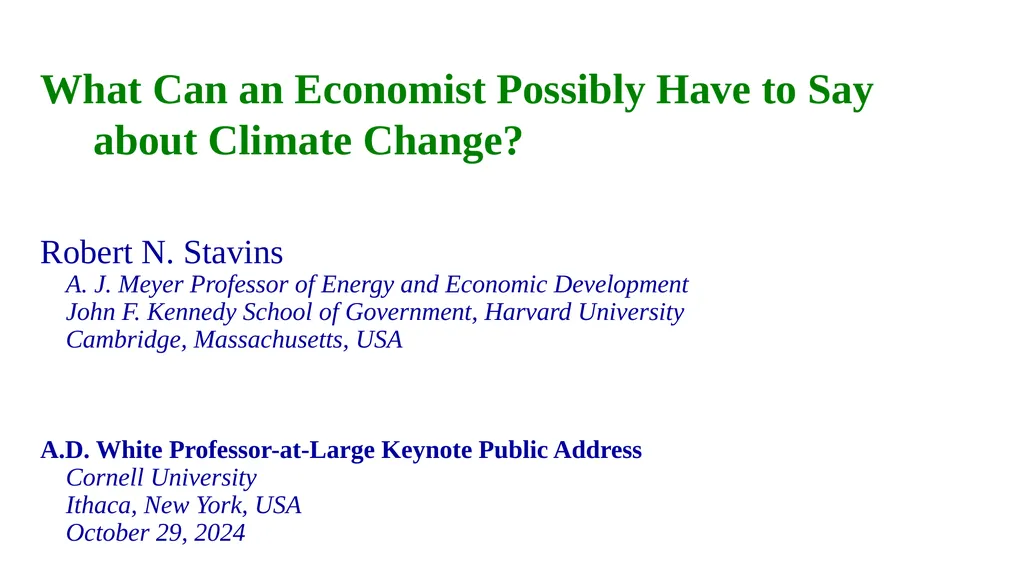
Author : alida-meadow | Published Date : 2025-05-24
Description: What Can an Economist Possibly Have to Say about Climate Change? Robert N. Stavins A. J. Meyer Professor of Energy and Economic Development John F. Kennedy School of Government, Harvard University Cambridge, Massachusetts, USA A.D. WhiteDownload Presentation The PPT/PDF document "" is the property of its rightful owner. Permission is granted to download and print the materials on this website for personal, non-commercial use only, and to display it on your personal computer provided you do not modify the materials and that you retain all copyright notices contained in the materials. By downloading content from our website, you accept the terms of this agreement.
Here is the link to download the presentation.
"What Can an Economist Possibly Have to Say about"The content belongs to its owner. You may download and print it for personal use, without modification, and keep all copyright notices. By downloading, you agree to these terms.













